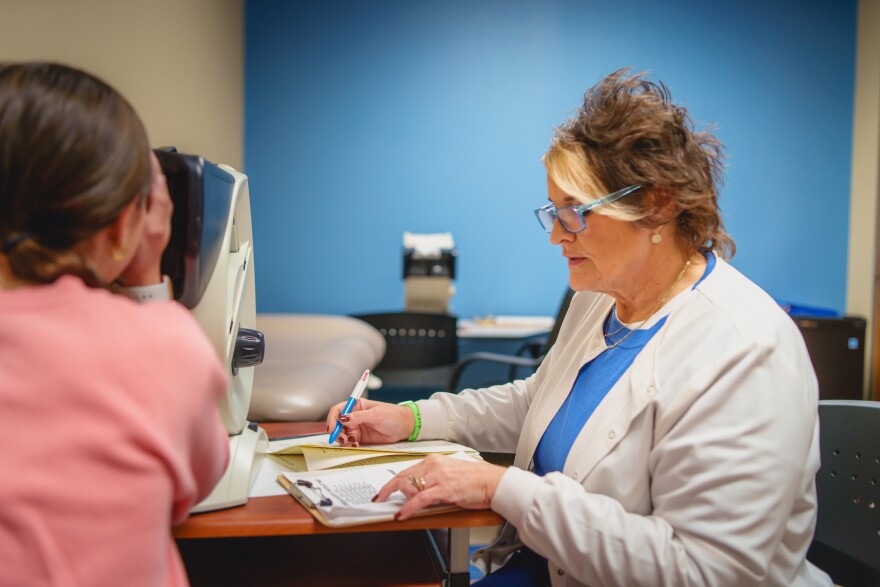School nurses are under-resourced and understaffed, according to the Moses Taylor Foundation.
The foundation partnered with PRO Wellness to create the Nurse Mentorship Program to help solve that problem.
“The idea is to give them the opportunity to hit so many of the intangibles that happen in any career," said Dr. Deepa Sekhar, Penn State Associate Professor of Pediatrics and executive director of PRO Wellness. "All of a sudden in a school all by myself ... I'm not really sure how to approach the administration, right? Or like I have a parent who I'm really struggling to deal with, and I don't have any experience in how to manage this."
The Northeastern Pennsylvania-based School Nurse Mentorship Program is a pilot program in its first year; 30 school nurses are paired up in twos, working together. They also provide the nurses with professional development.
School nurses are often either the only health care professional or one of a few in schools, said Christine Marcos, senior program officer for the Moses Taylor Foundation. In Pennsylvania, there must be one school nurse per 1,500 students. Marcos said that ratio was set in the 1950s, and since then, the role of a school nurse has drastically shifted.
"If they have even two or three students in that building who are managing a chronic condition like diabetes ... that student might be in their office multiple times per day," she said. "And that's not counting all the other students and all the paperwork and the screenings ... the role has really evolved. But a lot of the policies haven't kept up with the pace.”
Mary Ann Chindemi from Valley View High School is Jodi Kresse’s mentor. She’s a school nurse at Delaware Valley High School.
In January, Chindemi had a call with Kresse. They talked for over an hour, going over COVID protocols for this school year, chronic conditions and gym injuries.
Chindemi has been a school nurse for the Valley View School District for 19 years, compared to Kresse’s four years. They both graduated with their BSNs from Marywood University and worked in hospitals after graduation. They're also both certified school nurses (CSN).
“I always say it's difficult being the medical entity in an educational realm," said Chindemi.
Kresse signed up for the program to help provide the best care she can for her students.
"There's some days when I call her [Chindemi] and I'm like: 'so I'm seeing this in my office, what do you think the best way to handle it?',” she said.
Through the program, they have to talk once a month. But it's more often than that.
"She really helped me to navigate the everyday challenges and she helps me make sound decisions based on those years of experience that she does have," said Kresse.
In 2018, the Moses Taylor Foundation started looking at school health.
"The issue of school nurses kept coming up and the fact that school nurses are really on the front lines of a lot of health issues," said Marcos.
There was an assessment from the National Association of School Nurses.
"That's probably the first time we heard about this gap, and that oftentimes, school nurses are working alone in their building, if not their district," she said.
The foundation provided a grant to Penn State PRO Wellness for the program.
Sekhar said the worldwide nursing shortage impacts school nurses as well. There’s many reasons why nurses don’t go into the field — they work long hours, there’s high rates of burnout, the kids are medically complex and the pay is lower than in hospitals.
"A nurse needs to be able to deal with all of these things ... during the course of the day," said Sekhar. "It's a lot on top of all the routine things, like the school health screenings that have to be reported to Department of Health.”
Ultimately the goal of the program is to get nurses to stay in the field, said Sekhar.
"Offering a support structure is a good avenue to consider getting them to that point," she said.
At one point in her career, Chindemi was managing medication for nine students with diabetes.
She said recently, the mental health component to her job has really changed.
"There are more kids with anxiety and depression," she said.
Those issues are more pronounced post-COVID.
“It was a big adjustment for kids," she said. "But ... we step up to the plate. And we do what we have to do as school nurses, we always did."
Copyright 2024 WVIA. To see more, visit WVIA. 9(MDAzNTg0OTAyMDEyOTc4NzIxNTYxN2U1Yg004))


